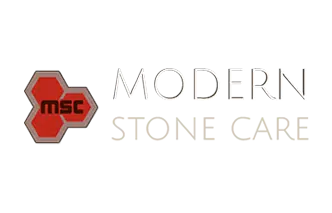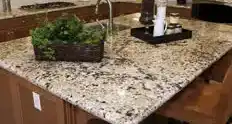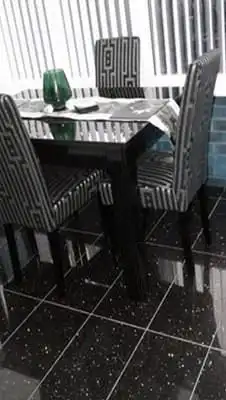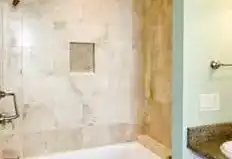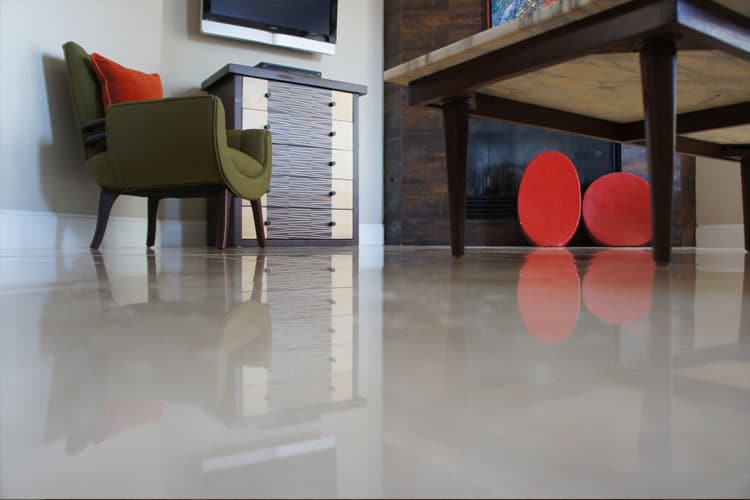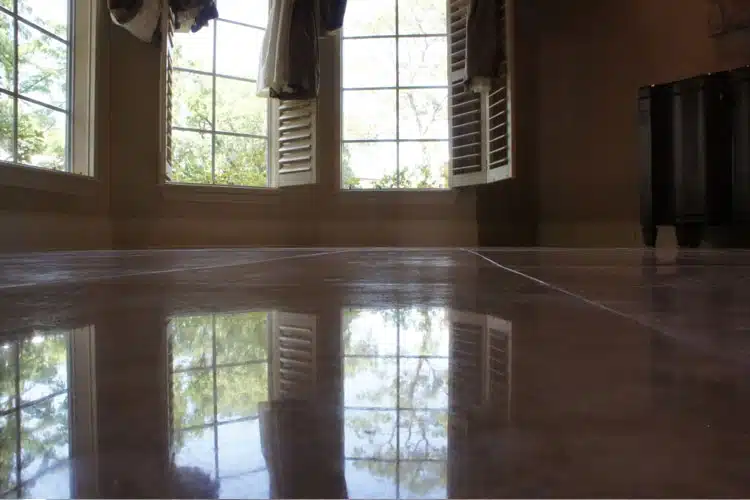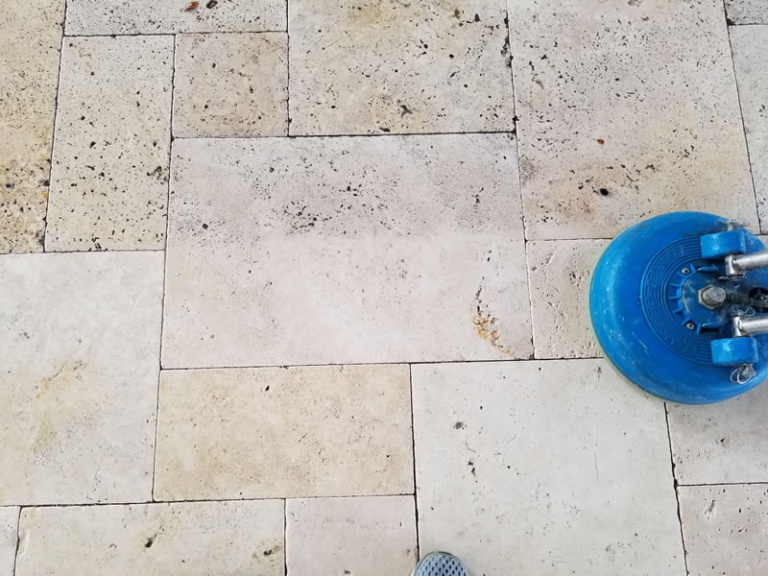Granite Floor Cleaning Houston
Granite Floor Cleaning Services Houston
Houston Floor Granite Cleaning
Granite floor cleaning Houston experts. Granite floors are prized for their durability and elegant appearance, but they require regular maintenance to stay in top condition. Unlike marble or limestone, granite is not acid-sensitive, but dirt and grime can still dull its shine over time. At Modern Stone Care, we specialize in professional granite floor cleaning in Houston. We use alkaline cleaning solutions because they emulsify and lift dirt more effectively than acidic cleaners. For granite floors with sanded grout, our process includes a second cleaning step to ensure grout lines are thoroughly cleaned and remain stain-free. This two-step process helps restore the natural beauty of your granite floors and leaves them looking as good as new.
Regular cleaning is essential for maintaining the longevity of granite floors, as foot traffic, dirt, and spills can accumulate over time. Our expert technicians use industry-leading tools and techniques to preserve the stone’s polished appearance. After cleaning, we can also recommend a maintenance plan to keep your granite floors looking their best between professional cleanings. Whether your floors are in a residential or commercial space, our comprehensive granite floor cleaning service ensures a deep clean and long-lasting shine.
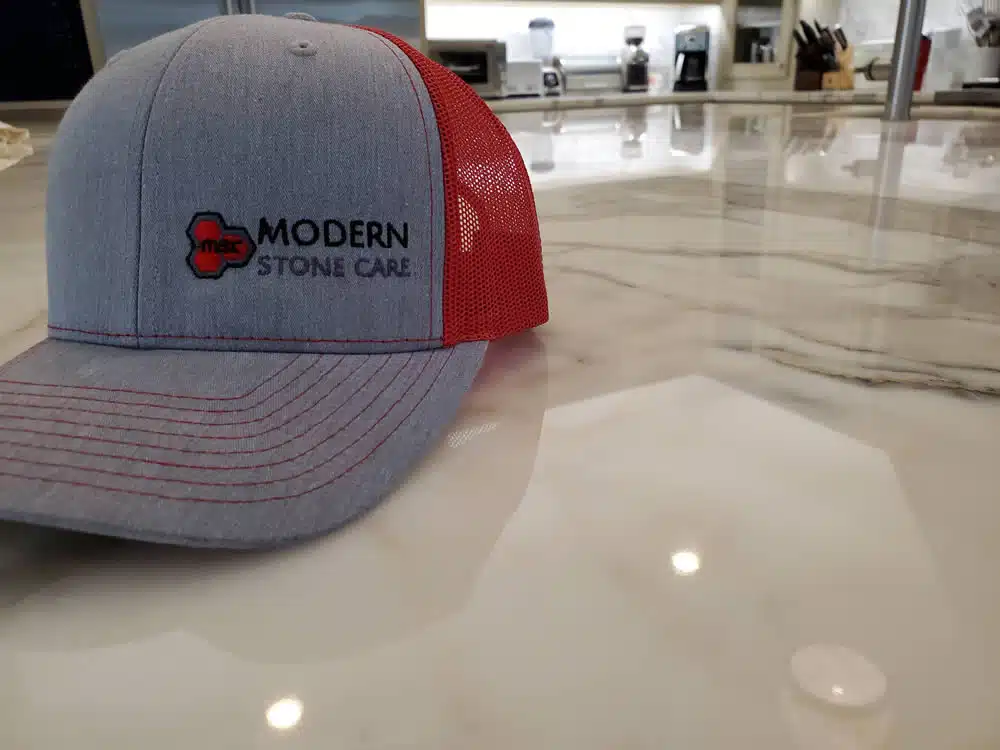
Why Choose Us
-
Excellent Customer Reviews
-
Professional and Qualified
-
Expert & Experienced
-
Repeat Clients based on Quality
Granite Countertop Cleaning Houston
Granite countertops are a staple in modern kitchens due to their strength, heat resistance, and ability to resist scratches. However, even granite countertops need routine care to maintain their beauty and prevent buildup. At Modern Stone Care, we offer professional granite countertop cleaning services in Houston, ensuring your countertops look stunning year-round. Unlike softer stones like marble or travertine, granite does not etch or dull as easily, but it can still accumulate grease, dirt, and stains from everyday use.
Our expert countertop cleaning services start with a thorough surface clean using our highly effective “Pure Stone Countertop Cleaner,” designed specifically for granite. This cleaner removes dirt, grease, and streaks, leaving your countertops looking smooth and polished. Before sealing the stone, we ensure the granite is free from stains and imperfections. Whether you use your countertops for meal prep or entertaining, keeping them clean and polished ensures they retain their beauty and functionality for years to come.
Granite Countertop Sealing Houston
Granite is a porous stone, which means that without proper sealing, liquids can seep in and cause stains. In a kitchen setting, this can be particularly problematic when it comes to oils and colored liquids like wine, juice, or sauces. At Modern Stone Care, we offer top-quality granite countertop sealing in Houston to protect your investment. Many homeowners believe that sealing granite only protects against water-based stains, but in reality, typical sealers may not protect against oil-based stains, which are common in kitchens.
That’s why we use premium oleophobic impregnators that protect your countertops from both water and oil-based stains. Our sealing process creates an invisible barrier on the stone’s surface, preventing liquids from penetrating the granite and leaving behind unsightly stains. Regularly sealing your granite countertops not only protects them from damage but also enhances their natural beauty by preserving their polished finish. Our expert team will assess your countertops and apply the appropriate sealant to ensure maximum protection.
Get in Touch!
Customer Reviews
Houston Expert Floor Polishing and Restoration
About Granite
In the commercial stone industry, the term “granite” is often used to describe a variety of natural stones that are harder than marble and have visible grains. These stones include basalt, gabbro, and others, which are all classified under the broader term of mercantile granite. True granite, as defined by a petrologist, is a plutonic rock that contains 10-50% felsic minerals and has a high concentration of alkali feldspar. While different stones may vary in hardness and porosity, they all require proper cleaning and sealing to protect them from stains and damage.
At Modern Stone Care, we treat each type of stone with the same level of care and professionalism. Whether your granite is petrological or mercantile, we apply the same proven cleaning and sealing techniques to preserve its beauty and durability. Granite, in all its forms, can be porous to varying degrees, making sealing a crucial part of its maintenance. Without proper sealing, even the hardest granite stones can become vulnerable to staining.
Care and Maintenance of Granite
Maintaining granite floors requires a consistent care plan to prevent wear and tear from foot traffic, pets, and spills. Daily care should include dry dust mopping with a clean rayon mop or static pad to remove dirt and debris that could scratch the surface. Vacuuming with a hard-surface vacuum is also recommended to pick up dirt from corners and grout lines. By removing debris regularly, you prevent it from being ground into the floor during damp mopping, which is required at least once a week.
When damp mopping, it’s essential to use a pH-neutral cleaner specifically designed for natural stone to avoid soap buildup, which can dull the floor’s polished finish. After cleaning with soap, rinsing is crucial. Always follow up with a clean water rinse to remove any remaining soap residue that could make the surface appear dull. While granite is less prone to etching compared to marble, travertine, or limestone, it still requires periodic polishing to restore its shine. We recommend professional granite floor polishing and deep cleaning at least once a year to maintain its natural beauty and prevent long-term damage.
Questions about Granite Floor Care
To effectively clean granite floor stains, begin by mixing a mild dish soap with warm water to create a gentle yet efficient cleaning solution.
Apply this mixture to the stained areas and let it sit for a few minutes to loosen the stain. Using a soft bristle brush or a microfiber cloth, gently scrub the affected areas in a circular motion to lift the stain without damaging the granite surface. Make sure to rinse the floor thoroughly with clean water to remove any soap residue.
For tougher stains, consider using a specialized granite cleaner or a mixture of water and rubbing alcohol for a more potent solution. Be cautious when using acidic or abrasive cleaners as they can harm the granite surface. Once the stain is removed, dry the floor with a clean towel to prevent water spots and maintain the granite’s natural shine.
Finally, consider applying a granite sealer to protect the surface from future stains and spills, ensuring your granite floor remains in pristine condition for years to come.
To effectively clean granite floors naturally, begin by removing any debris and dust with a soft-bristled broom or dry mop.
Next, mix a solution of warm water and a gentle pH-neutral cleaner, such as dish soap or a specific granite cleaner, in a bucket. Avoid using acidic or abrasive cleaners as they can damage the granite’s surface. Dip a clean microfiber mop into the solution and wring it out thoroughly before gently mopping the floor.
For stubborn stains, create a paste of baking soda and water, apply it to the stain, and let it sit for a few minutes before gently scrubbing with a soft brush. Rinse the floor with clean water and dry it thoroughly with a soft towel to prevent water spots.
To maintain the shine of the granite, use a granite polish or a small amount of olive oil applied with a soft cloth in a circular motion. Regularly sealing the granite floors will also help protect them from damage and maintain their natural beauty.
Remember to always test any cleaning solution on a small, inconspicuous area of the granite floor before applying it to the entire surface. By following these natural cleaning tips with a professional approach, you can keep your granite floors looking pristine and well-maintained.
To clean granite floors without streaks, it is crucial to follow a systematic and careful approach. Begin by removing any debris or loose dirt by sweeping the floor with a soft-bristled broom or vacuuming with a soft brush attachment to prevent scratching the surface.
Next, mix a mild pH-balanced, non-abrasive cleaner with warm water in a bucket, ensuring it is specifically designed for granite.
Avoid using harsh chemicals or acidic substances that can damage the stone. Dip a soft microfiber mop into the solution and wring out excess water to prevent oversaturation.
In a gentle, circular motion, clean the granite floor, working in small sections at a time to guarantee thorough coverage. Once finished, rinse the mop in clean water and go over the floor again to remove any remaining residue.
Finally, dry the floor completely using a clean, dry microfiber cloth to achieve a streak-free shine. Taking these steps with a professional touch will help maintain the beauty and longevity of your granite floors.
When it comes to effectively cleaning granite floors with vinegar, maintaining a professional approach is key to achieving optimal results. Begin by diluting white vinegar with water in a ratio of 1:1 to avoid damaging the granite surface.
Prior to cleaning, sweep or vacuum the floor to remove debris and dust particles. Next, using a soft mop or cloth, gently apply the vinegar solution to the granite floor, ensuring even coverage.
Allow the solution to sit for a few minutes to break down dirt and grime before thoroughly rinsing the floor with clean water and drying it with a soft towel. Avoid using abrasive cleaners or tools that could scratch the granite surface.
For tougher stains, create a paste of baking soda and water, apply it to the affected area, and let it sit for a few minutes before gently scrubbing with a soft brush. Once the cleaning process is complete, rinse the floor thoroughly with clean water to remove any residue.
Finally, dry the granite floor with a clean towel to prevent water spots or streaks.
Regular maintenance with this vinegar cleaning method will help preserve the beauty and shine of your granite floors, keeping them looking pristine and professional.
The Swiffer cleaning system, while popular for quick and convenient cleaning, may not be the best choice for cleaning granite floors.
Granite is a delicate natural stone that requires special care to maintain its beauty and longevity.
The chemicals in Swiffer cleaning solutions could potentially damage the sealant on the granite floor, leading to discoloration or dulling of the surface over time.
Additionally, the abrasive nature of some Swiffer pads may cause scratches on the granite surface, compromising its smooth finish.
When using Swiffer on granite floors, it is essential to avoid abrasive cleaning methods, as granite is a relatively soft and porous material that can be susceptible to damage from harsh chemicals or rough scrubbing.
Instead, opt for gentle, non-abrasive cleaning solutions to maintain the longevity and appearance of your granite floors.
Overall, when used correctly and with proper care, Swiffer can be a beneficial tool for keeping your granite floors clean and well-maintained.
